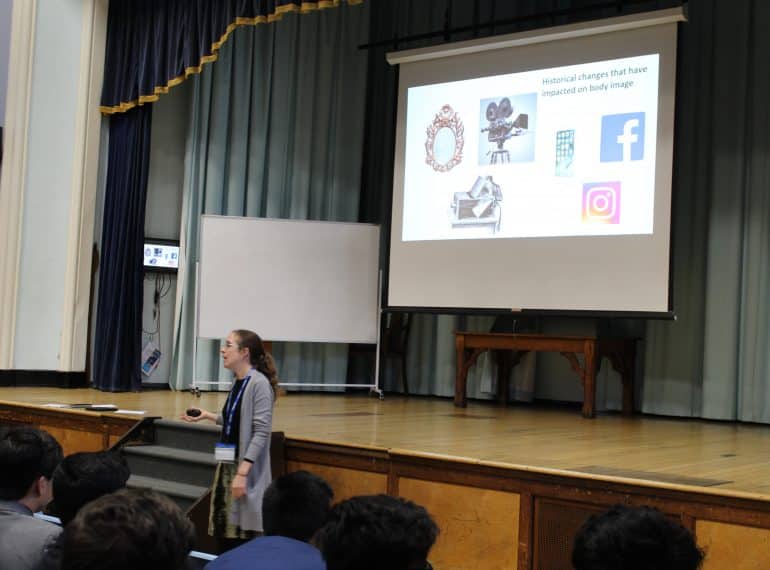In good shape: cultivating sound bodies and healthy minds

Body image took centre-stage at a Year 12 assembly held as part of QE’s pastoral support programme.
Nicole Schnackenberg, of the Body Dysmorphic Disorder (BDD) Foundation, explained to the boys that BDD is the perception of a major flaw or imperfection in appearance, which can lead to hours of pre-occupation, camouflaging and even self- harm.
She outlined how societal changes have had an impact on body image, with technological developments spanning the centuries from the invention of modern mirrors through the advent of television to the growth of social media, such as Instagram, all playing their part.
“BDD is not about vanity,” said Ms Schnackenberg. “It affects boys as well as girls and can include an obsessive desire to ‘bulk out’ or, conversely, to lose weight.” She went on to say that BDD has one of the highest suicide rates of any mental health diagnosis.

Ms Schnackenberg rounded off her presentation with the encouraging news that many people, with timely and appropriate intervention, make a full recovery and go on to lead happy, meaningful and fulfilled lives.
Head of Year 12 Michael Feven said “We are committed to ensuring that our boys have the highest standard of pastoral care and access to external sources of information on topics relating to their physical and mental health. It is also important that we talk openly about such matters. Therefore, we very much appreciated Nicole’s clear and helpful presentation, which was followed by a useful Q&A session.”
